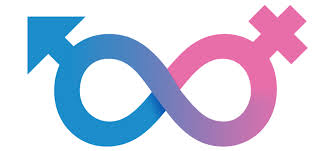“Behind every great man there stands a good woman” This quote sums up rather accurately Jean-Jacques Rousseau’s condescending view of women and the role they should play in society. After reading an excerpt from Rousseau’s writings on Education, which prompted Mary Wollstonecraft to write A Vindication of the Rights of Woman, I felt compelled to blog about the relevancy such feral misconceptions still have in our society today.
Rousseau’s argument rests heavily on what he refers to as the ‘invariable law of nature’, a term which anthropologically correlates with what is now referred to as biological determinism: an ideology that supposes the physiological or genetic structure of an individual controls their behaviour. To put it simply, women are confined to the home because of their ability to produce and nurture offspring, an ability afforded them due to their sexual composition (uterus, mammary glands). This leaves the man to integrate himself into the external world of social, economic, and political opportunity so as to provide for mother and child.
This rather caveman hypothesis of social roles, however simplistic, points to where such discourses initiate. Maybe a matter of convenience for the Neanderthal, this unintelligible human discourse has become the centre of female indignation. “Is Female to Male as Nature Is to Culture”, an essay by Sherry B. Ortner, articulates further on the matter. Sherry dismisses the biological approach of the devaluation of women, maintaining that, although relevant, its isolation as an affect remains erroneous. Sherry argues that there are a number of interrelated issues which have allowed men to think of women as secondary, and states that “we must attempt to interpret female subordination in light of other universals of the human condition”. The human conditions she speaks of are that of ‘nature’ and ‘culture’, in which she posits men as being associated with ‘culture’ and women with ‘nature’. Without belabouring each of Sherry’s viewpoints, one could ascertain that culture is broadly speaking controlled by man and, through manipulation and exploitation, categorised women as natural creatures whose very essence of life is to pro-create and nurture their young.  This brings me to my next point. If sexism can be reduced to a cultural defect, why it is that racism is now, generally speaking, non-existent? One of the most culturally defected discourses in human history was the discrimination of Blacks and, alongside it, slave ownership. At one time or another, white folk thought it their human right (invariable law of nature) to own a black slave so as to enhance their own cause. This ‘invariable law of nature,’ as Rousseau calls it, is presently considered a fallacy regarding the superiority of white men over black men. Some points of interest to the reader of this blog are relevant here: (1) when speaking of the eradication of racism, I mean only to employ its concept universally, as to say racism is not prevalent in specific societies would be an obvious deception; (2) although the liberation of woman is said to have already occurred, sexism remains more tolerant than racism, particularly in Western civilisations.
This brings me to my next point. If sexism can be reduced to a cultural defect, why it is that racism is now, generally speaking, non-existent? One of the most culturally defected discourses in human history was the discrimination of Blacks and, alongside it, slave ownership. At one time or another, white folk thought it their human right (invariable law of nature) to own a black slave so as to enhance their own cause. This ‘invariable law of nature,’ as Rousseau calls it, is presently considered a fallacy regarding the superiority of white men over black men. Some points of interest to the reader of this blog are relevant here: (1) when speaking of the eradication of racism, I mean only to employ its concept universally, as to say racism is not prevalent in specific societies would be an obvious deception; (2) although the liberation of woman is said to have already occurred, sexism remains more tolerant than racism, particularly in Western civilisations.
 Why is it that racist positions are easier to relinquish than sexist ones? Lawrence Thomas, a Professor of Philosophy and Political Science, gives a compelling answer to this question. Thomas explains that, in liberating women, men must come to grips with their conception of themselves as men. If there is to be a reversal of roles – the man staying home and tending to his children, while the woman goes out and works – a feeling of inadequacy perturbs the male. However, in allowing the Black man equal rights, nothing changes for the White man. Even today, if I were to call a black man a ‘nigger’ publicly, this would lead to high condemnation from whomever was in ear shot of such a derogatory remark. Equally, if I were to call a woman a ‘fine piece of ass’ or ‘sexy fox’, people would more than likely smile and continue their endeavours. Stereotypical outlooks and their proliferation need to be opposed and, more importantly, prevented from seeping into future generations. Sexist expressions, similar to that of racist terms, must be seen to be criminally as well as personally offensive.
Why is it that racist positions are easier to relinquish than sexist ones? Lawrence Thomas, a Professor of Philosophy and Political Science, gives a compelling answer to this question. Thomas explains that, in liberating women, men must come to grips with their conception of themselves as men. If there is to be a reversal of roles – the man staying home and tending to his children, while the woman goes out and works – a feeling of inadequacy perturbs the male. However, in allowing the Black man equal rights, nothing changes for the White man. Even today, if I were to call a black man a ‘nigger’ publicly, this would lead to high condemnation from whomever was in ear shot of such a derogatory remark. Equally, if I were to call a woman a ‘fine piece of ass’ or ‘sexy fox’, people would more than likely smile and continue their endeavours. Stereotypical outlooks and their proliferation need to be opposed and, more importantly, prevented from seeping into future generations. Sexist expressions, similar to that of racist terms, must be seen to be criminally as well as personally offensive.
 Rousseau asserts that a woman’s purpose is to produce off-spring, a view inconspicuously held by some men today. Scholars argue that Rousseau’s views are far more complex and that, to fully understand them, they must be assessed in the context of his life and time. So why then do his beliefs continue to overshadow modern civilisation? Those who think like Rousseau are weak and those who think differently but remain passive are cowardly.
Rousseau asserts that a woman’s purpose is to produce off-spring, a view inconspicuously held by some men today. Scholars argue that Rousseau’s views are far more complex and that, to fully understand them, they must be assessed in the context of his life and time. So why then do his beliefs continue to overshadow modern civilisation? Those who think like Rousseau are weak and those who think differently but remain passive are cowardly.
Works Cited
Thomas, Laurence. “Sexism and Racism: Some Conceptual Differances.” Ethics (1980): 239-50. Print.
Trouille, Mary. “The Failing of Rousseau’s Ideals of Domesticity and Sensibility.” Eighteenth-Century Studies (1991): 451-83. Print.

Really interesting comparison Tim! 🙂 I think it might be so difficult to eradicate sexism as opposed to racism because so often women embrace their objectification. To my knowledge black people never apprecraciated white people calling them ‘nigger’, but so many women seem to thrive on those ‘fine piece of ass’ comments. This might be normalising sexist behaviour, strange as it is!
LikeLiked by 1 person
Yes, a very apt observation Laura. It is so disheartening to see women accept and even revel in such derogatoriness. This acceptance, as you mentioned, greatly complicates the matter. So much more can be said regarding this topic, another blog perhaps.
LikeLike